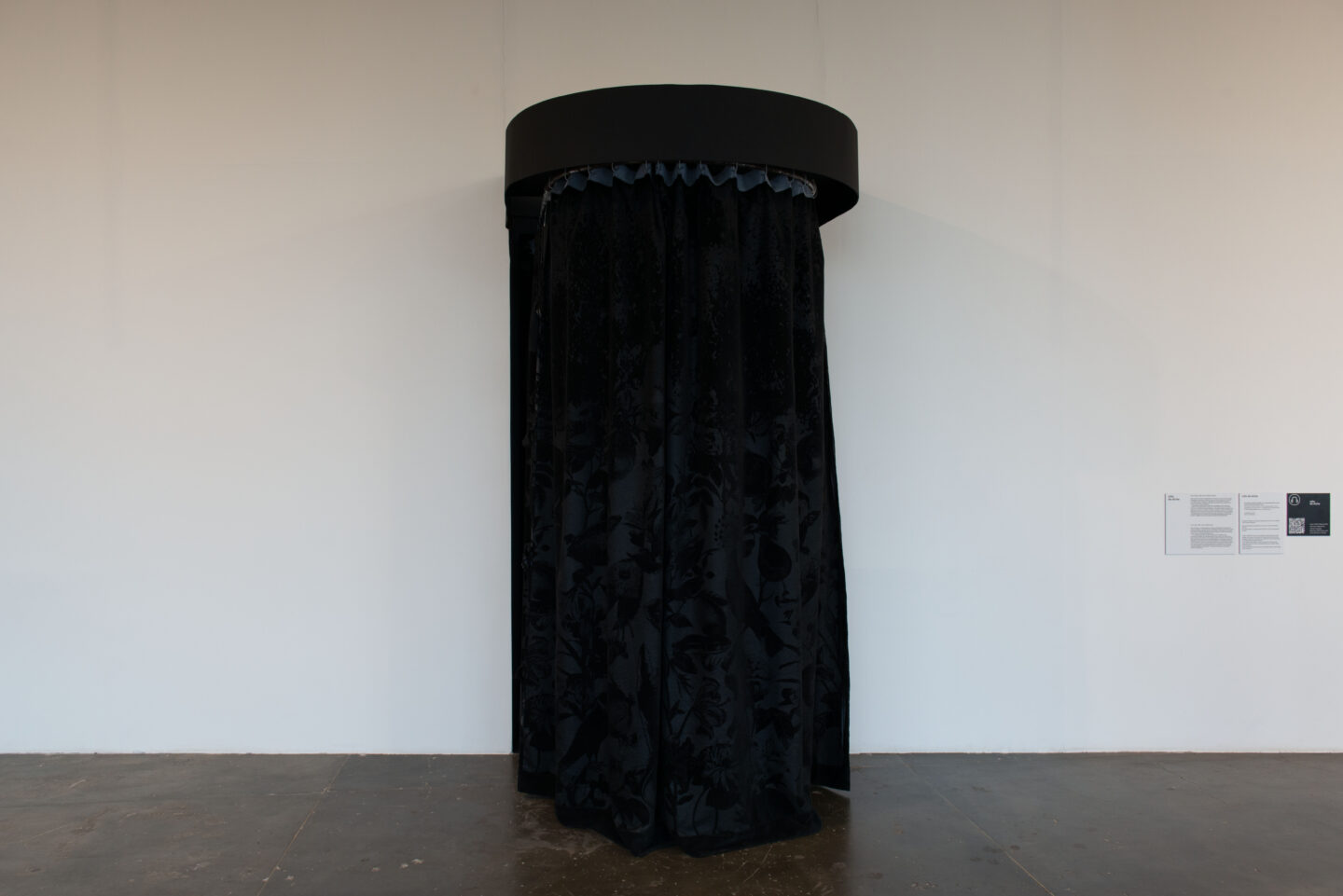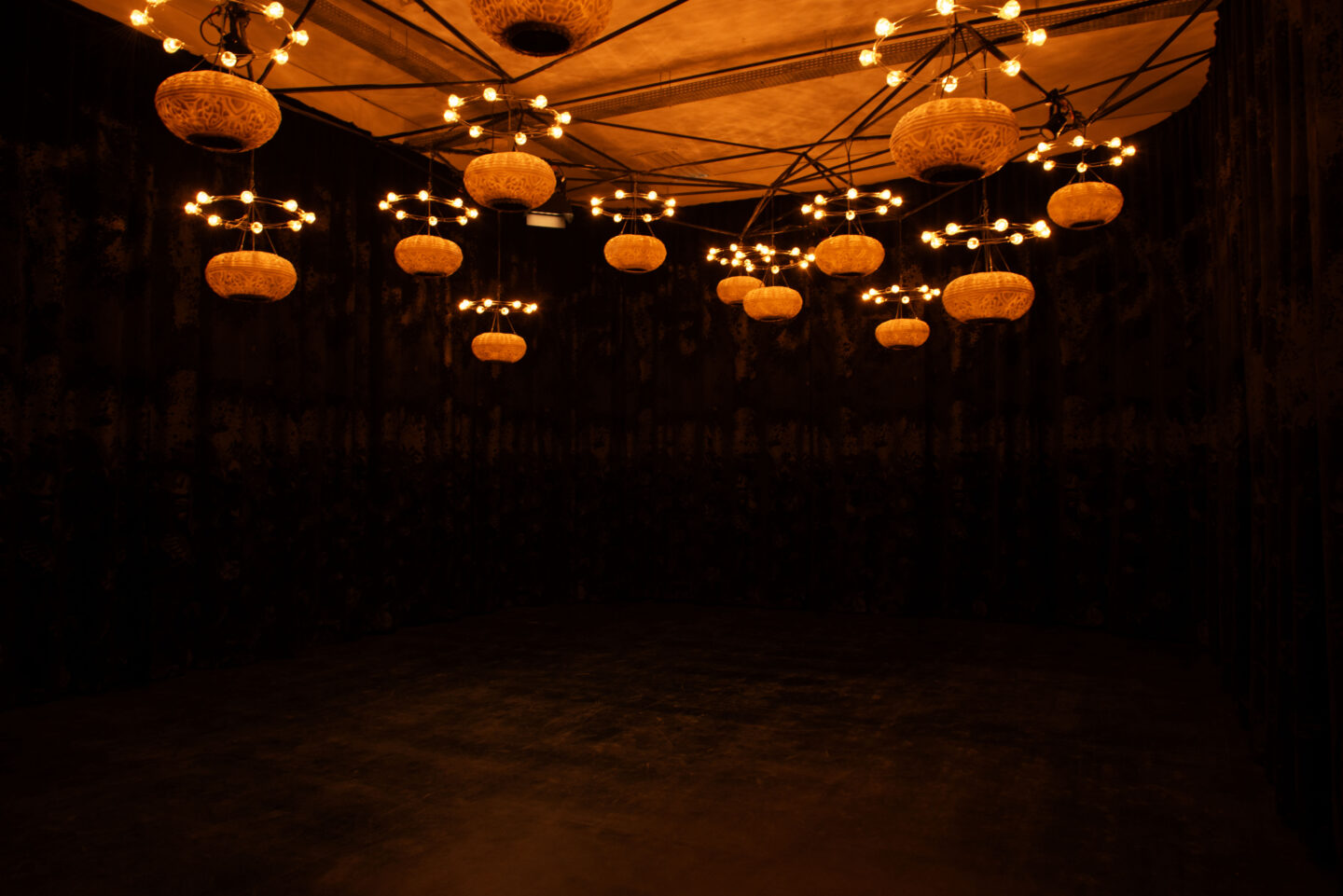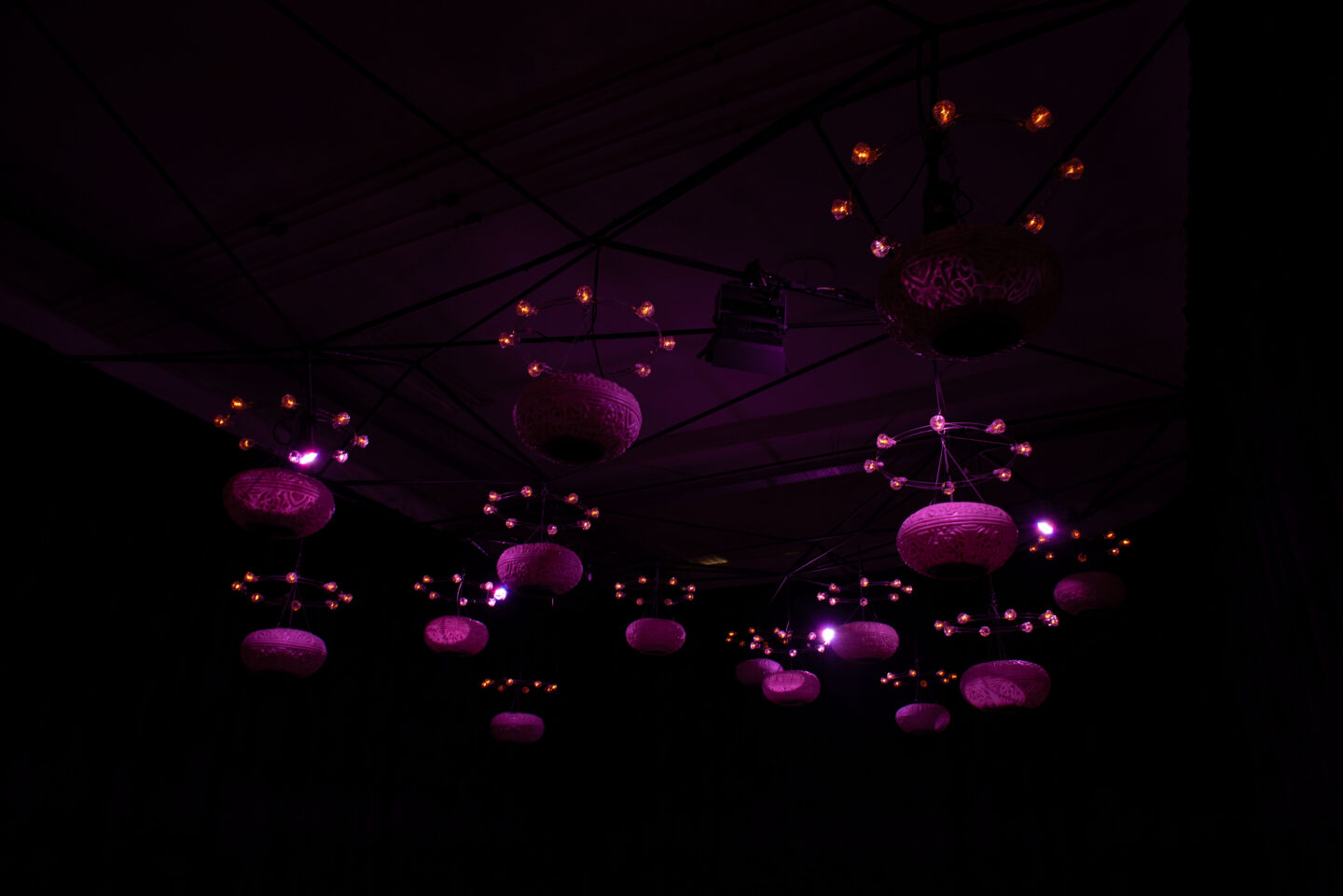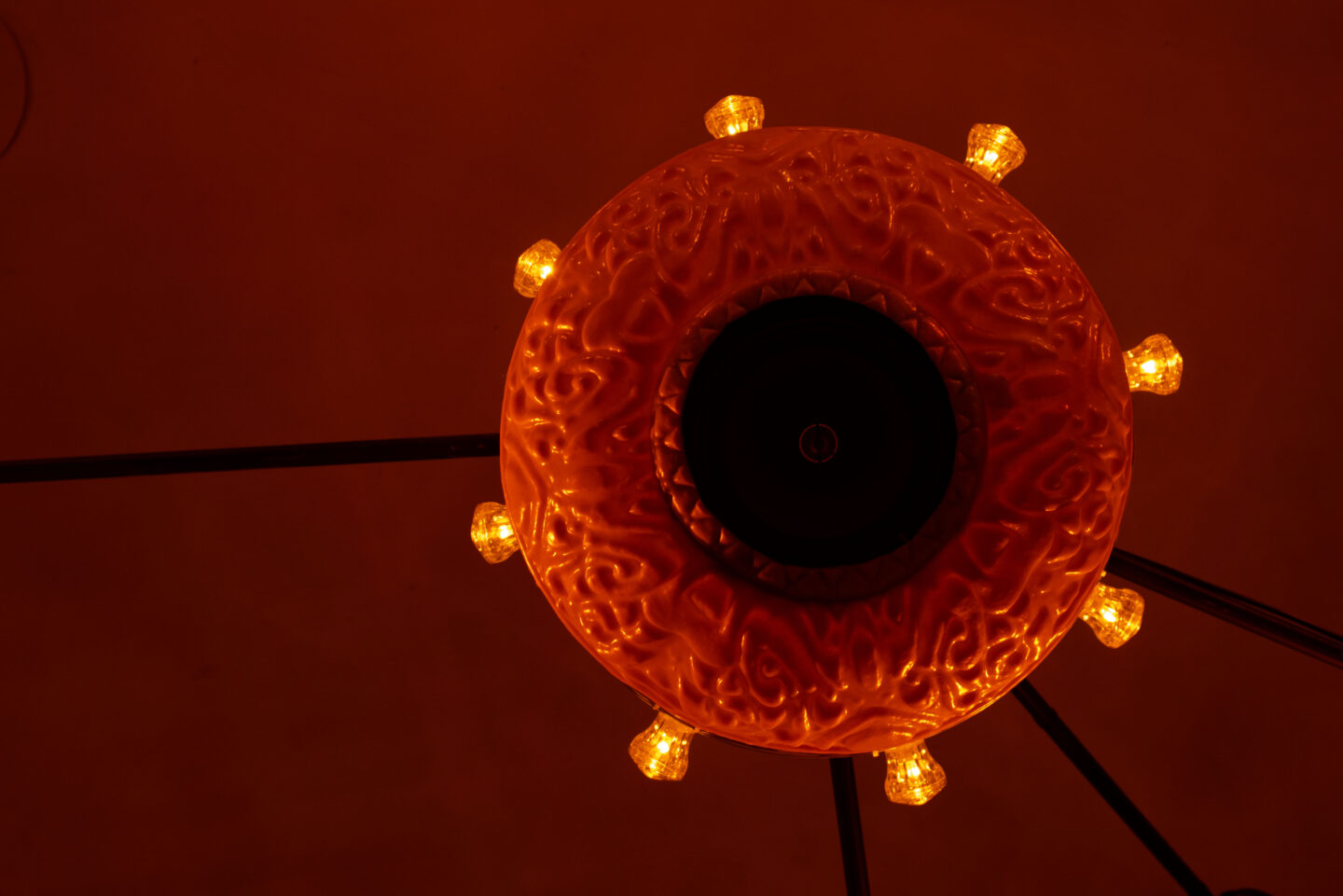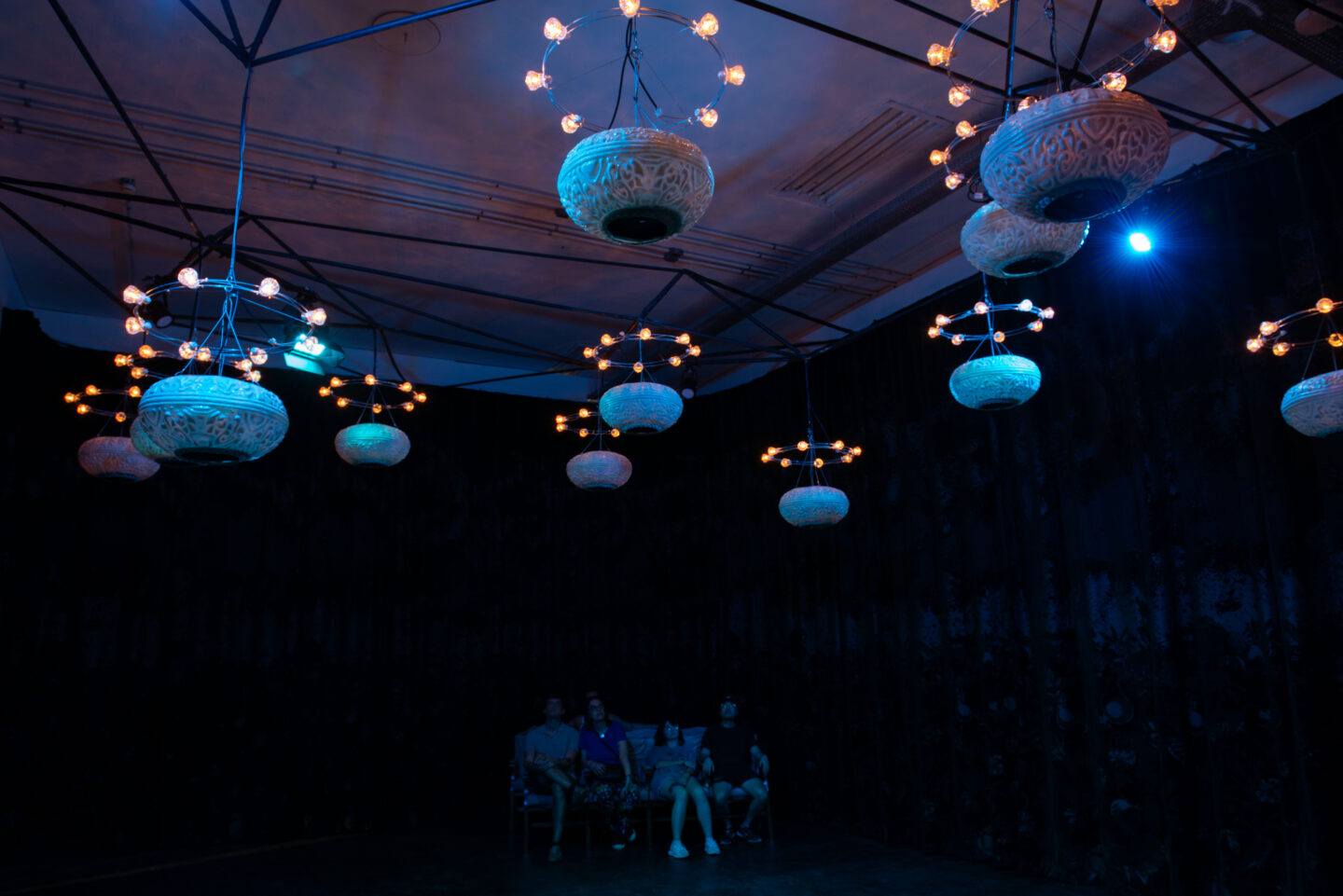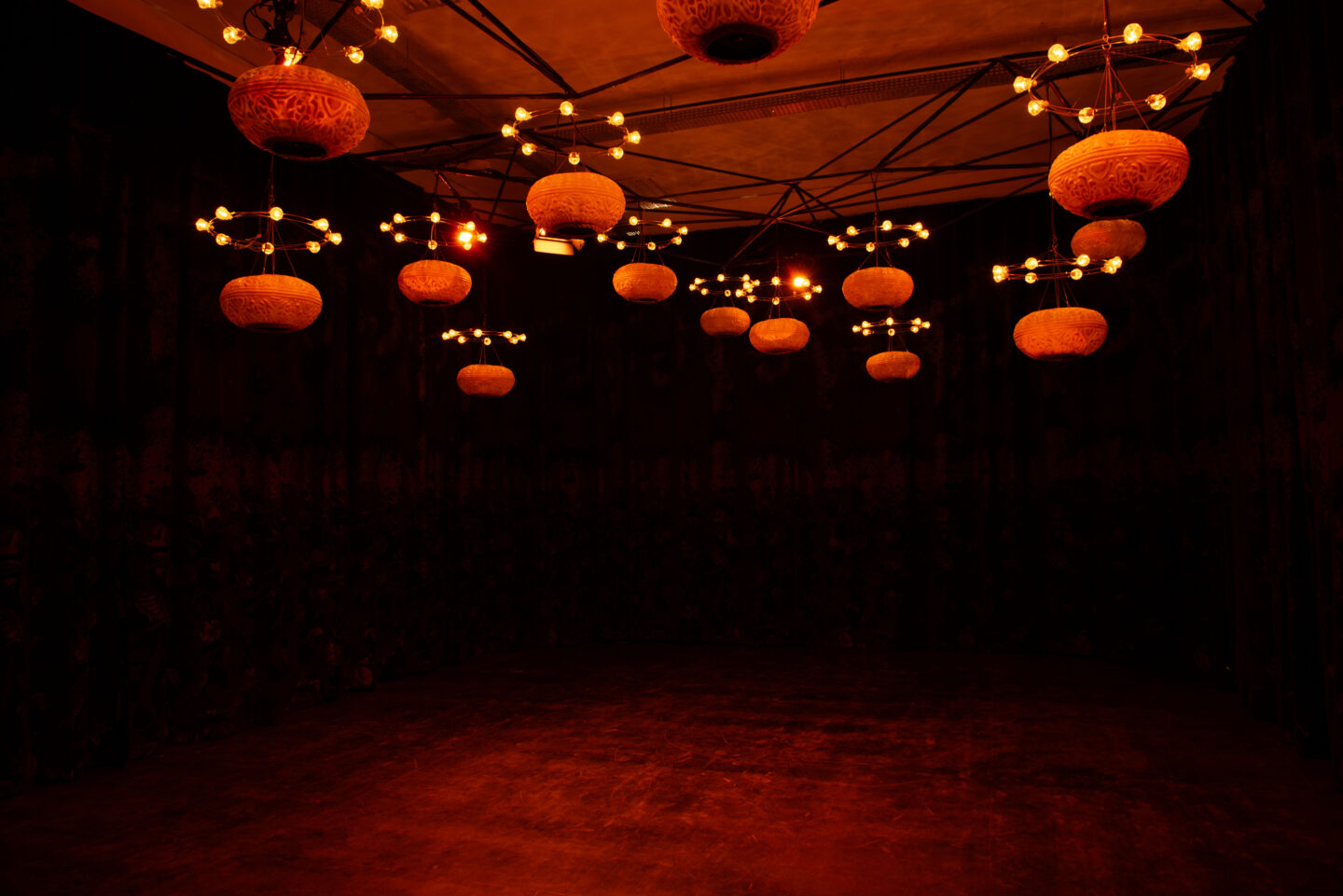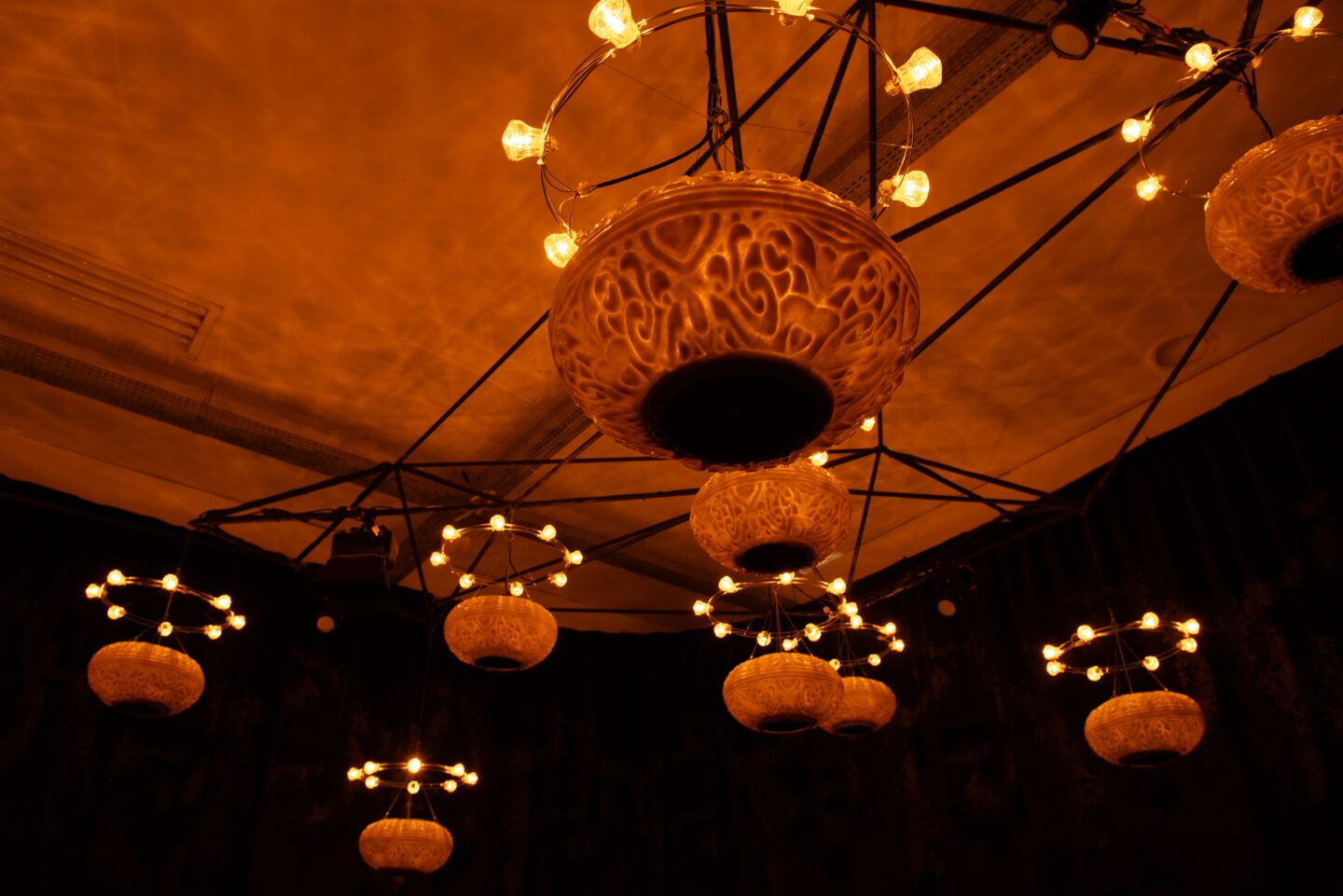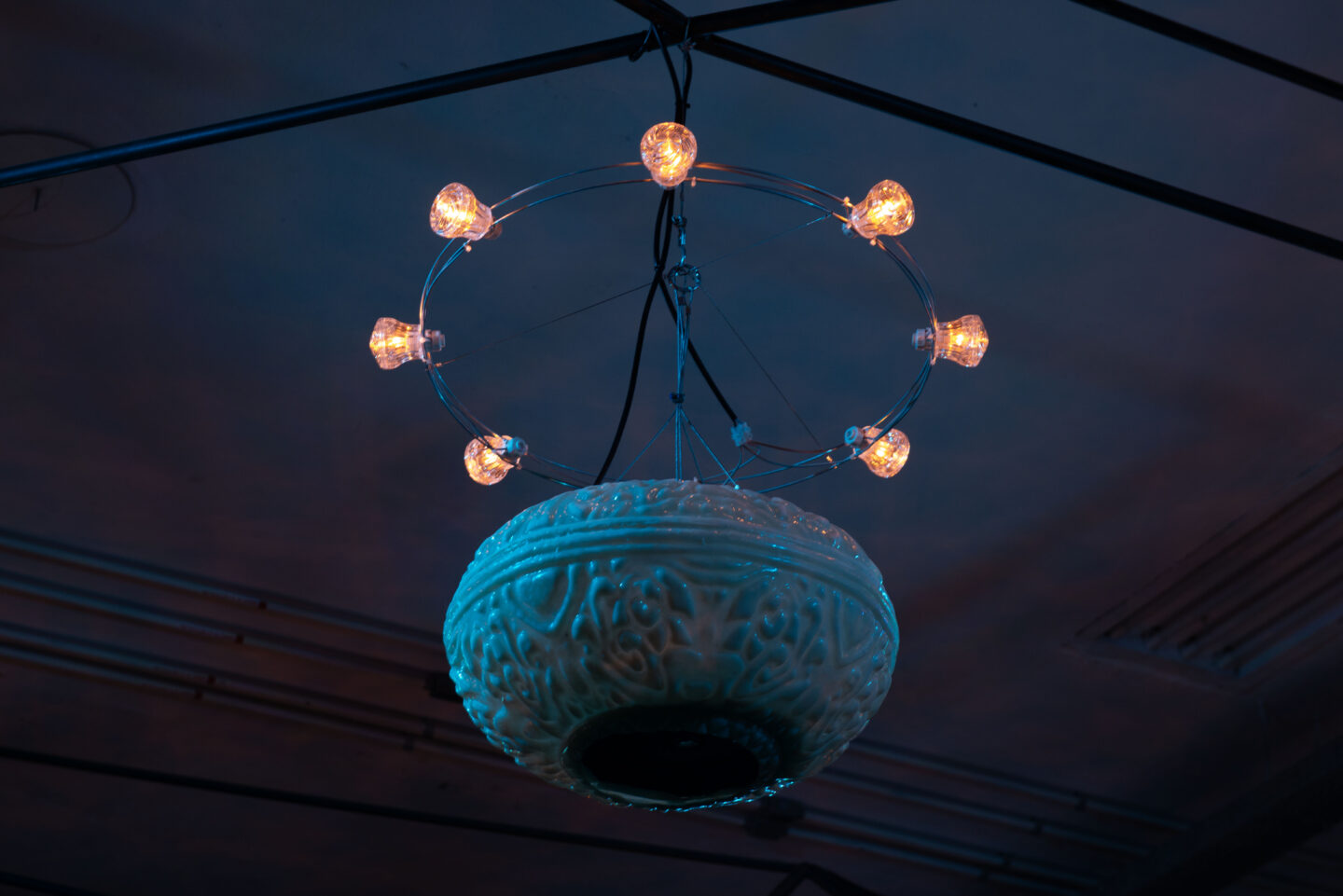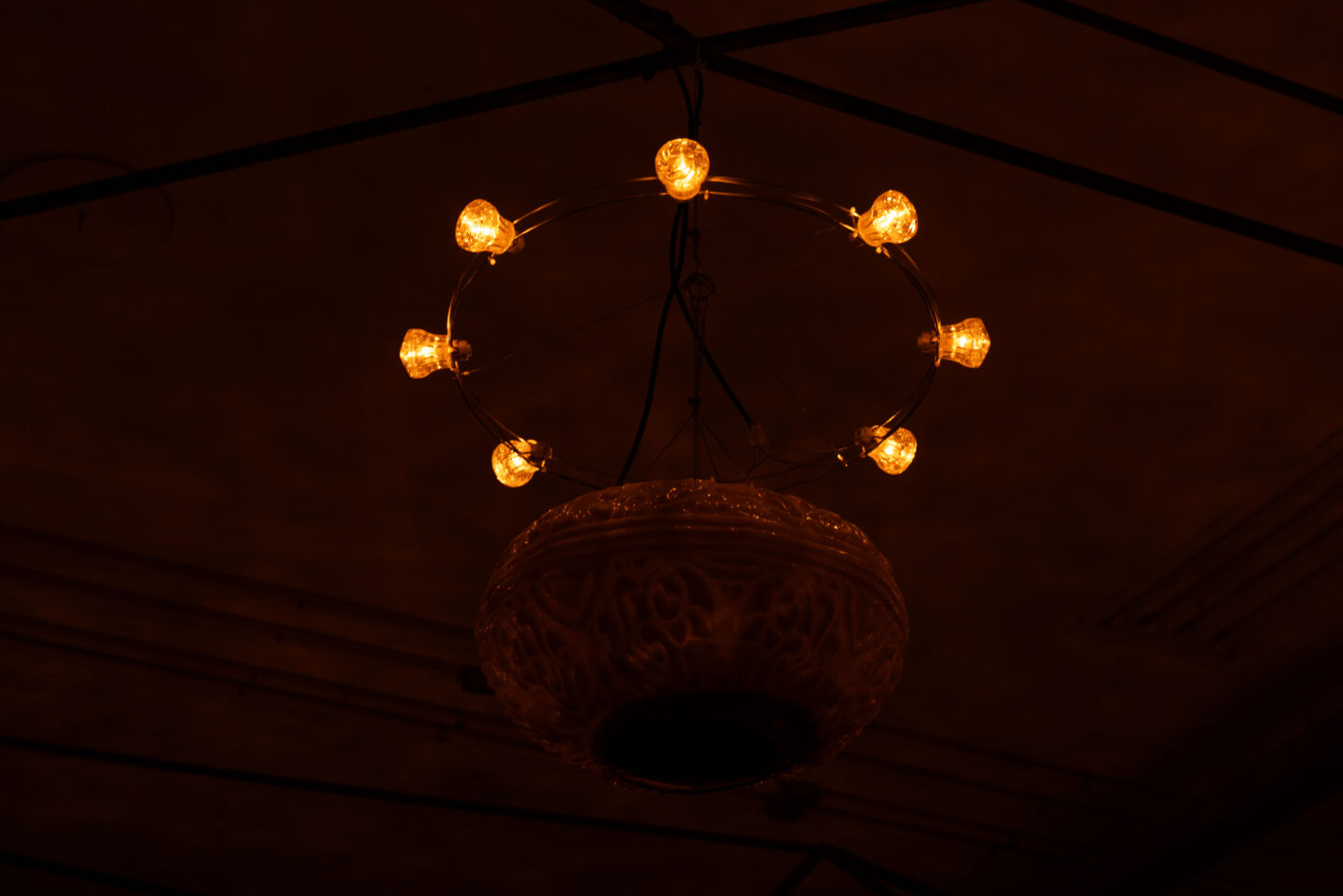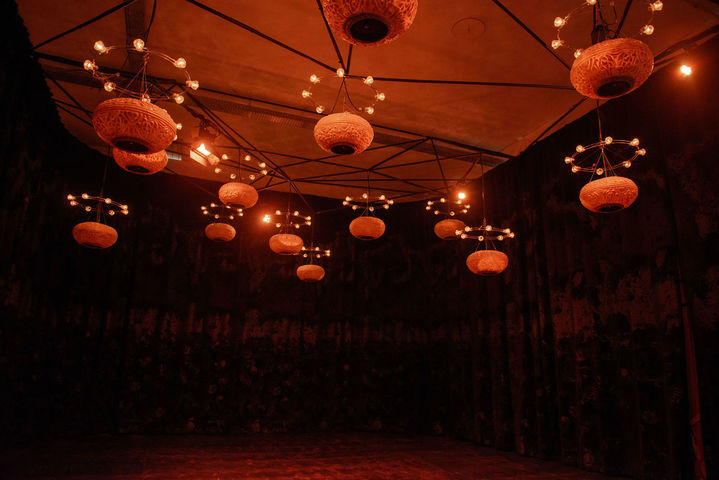
Niño de Elche
El Niño de Elche, who identifies himself as “ex-flamenco,”, shares with the “cinemista” (film-alchemist) Val del Omar a transcendental aim and an experimental disposition. His transcendental aim encourages him to take risks, in the edges of social and political reality, as an engaged singer, or in an experienced reality, deep in the flesh and the spirit. This second search, which for centuries has been the sphere of religion, can come into conflict with the first, and produce ideological conflicts and personal tears. El Niño de Elche does not avoid them, the same as Val del Omar, who could not escape his context, in the darkest years of the Franco dictatorship, under the Falangist-inspired National-Catholic ideology. However, his poetic and technical practice does not respond to a political motivation, but to a visionary one. His was a quest for the absolute, and this purpose mobilized him towards the production of a total cinema, which he called “mecamistics,” through a series of technical inventions that he patented and that led him to conceive an expansion of cinema through the apanoramic overflow, Diaphony, TactilVisión and others, in which he worked until his death in the PLAT Laboratory. The Auto Sacramental Invisible. Una representación sonora a partir de Val del Omar [Invisible Auto Sacramental: A Sonic Representation from Val del Omar] (2021) is a project that reveals Val del Omar’s devotion to acoustic experimentation. In its title and structure, it refers to the eucharistic plays, stage pieces with allegorical content, which he reinterpreted to capture his own obsessions: the water from the fountains, original sin, the atomic bomb, the experience of time without history Granada as a melting pot of cultures, among others. In its projected realization this Auto had the form of a sound installation; the “invisible” refers to the idea of a penumbra that favors listening in a space illuminated only by votive lamps. “Active listening” is Niño de Elche’s departing point: carefully reading the multiple versions of the script (its variations or differences) and stage instructions, and spending weeks listening the complete sound archive, made up of hundreds of magnetic tapes. The cinemista’s recordings pass through the ex-flamenco’s body in a kind of possession ritual. Vocal technique is at the service of this poetic and transcendental experience, which does not need to get rid of the material to reach the invisible. The flesh is also clay, the voice is also water, but its medium can be electronics. The song is transferred to the magnetic support (now digital), it becomes concrete, making real Manuel de Falla’s dream (who had speculated on mechanical music and recorded sound as means that make possible a music without performer). And the theatrical community disappears from the stage, but it manifests itself in the multitude of voices that make up the script-palimpsest, and the multitude of eyes and hands that have intervened over the years to make this installation possible. The theatrical is also realized in the invitation to the spectator to participate in that other non-spectacular choreography: the one that he composes with his movements in the active listening of a sound that is spatialized, always fleeting, like the lamps and the images that contribute to the invisibility.
josé antonio sánchez
- Vista da instalação Auto Sacramental Invisible. Una representación sonora a partir de Val del Omar de Niño de Elche durante a 35a Bienal de São Paulo. 11/10/2023 © Levi Fanan / Fundação Bienal de São Paulo
- Vista da instalação Auto Sacramental Invisible. Una representación sonora a partir de Val del Omar de Niño de Elche durante a 35a Bienal de São Paulo. 11/10/2023 © Levi Fanan / Fundação Bienal de São Paulo
- Vista da instalação Auto Sacramental Invisible. Una representación sonora a partir de Val del Omar de Niño de Elche durante a 35a Bienal de São Paulo. 11/10/2023 © Levi Fanan / Fundação Bienal de São Paulo
- Vista da instalação Auto Sacramental Invisible. Una representación sonora a partir de Val del Omar de Niño de Elche durante a 35a Bienal de São Paulo. 11/10/2023 © Levi Fanan / Fundação Bienal de São Paulo
- Vista da instalação Auto Sacramental Invisible. Una representación sonora a partir de Val del Omar de Niño de Elche durante a 35a Bienal de São Paulo. 11/10/2023 © Levi Fanan / Fundação Bienal de São Paulo
- Vista da instalação Auto Sacramental Invisible. Una representación sonora a partir de Val del Omar de Niño de Elche durante a 35a Bienal de São Paulo. 11/10/2023 © Levi Fanan / Fundação Bienal de São Paulo
- Vista da instalação Auto Sacramental Invisible. Una representación sonora a partir de Val del Omar de Niño de Elche durante a 35a Bienal de São Paulo. 11/10/2023 © Levi Fanan / Fundação Bienal de São Paulo
- Vista da instalação Auto Sacramental Invisible. Una representación sonora a partir de Val del Omar de Niño de Elche durante a 35a Bienal de São Paulo. 11/10/2023 © Levi Fanan / Fundação Bienal de São Paulo
- Vista da instalação Auto Sacramental Invisible. Una representación sonora a partir de Val del Omar de Niño de Elche durante a 35a Bienal de São Paulo. 11/10/2023 © Levi Fanan / Fundação Bienal de São Paulo
Niño de Elche (Elche, Spain, 1985. Lives in Madrid, Spain) is a musician who works with performance, poetry, and visual art. Some of his most important works include the album “Voces del extremo” (2015), his project “Antología del cante flamenco heterodoxo” (2018), and the installation “Auto sacramental invisible” at the Museo Reina Sofía (Madrid, Spain). He has received the Premio Gaudí for Best Original Music (2021), among others.
This participation is supported by Acción Cultural Española (AC/E).

 Português
Português